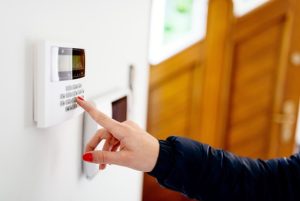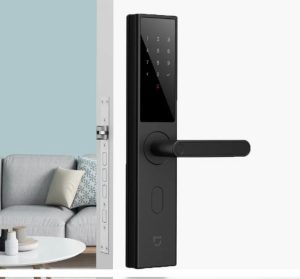Home security is a major concern for homeowners, and for good reason. According to statistics, a home burglary occurs every 13 seconds in the United States. With such a high incidence rate, it is essential to take steps to secure your home and protect your family. One of the most effective ways to do this is by installing an alarm system for home security. In this article, we’ll explore what an alarm system is, how it works, and the benefits of having one installed in your home.
What is an Alarm System for Home Security?
An alarm system for home security is a network of sensors and devices that alert homeowners and authorities of potential intrusions or break-ins. These systems can be wired or wireless and can include door and window sensors, motion detectors, cameras, and alarms. When an alarm system is triggered, it sends a signal to a monitoring center, which can then notify the homeowner and/or local authorities of the potential threat.
How Does an Alarm System Work?
Alarm systems work by detecting any unusual activity in the home and alerting the homeowner and/or authorities. The sensors and devices in the system are designed to detect motion, sound, and other disturbances. For example, if a door or window is opened while the system is armed, the door or window sensor will detect the change and send a signal to the control panel. The control panel will then activate the alarm and send a signal to the monitoring center.
If the alarm is triggered, the monitoring center will attempt to contact the homeowner to verify if it is a false alarm. If the homeowner does not answer or provides the wrong password, the monitoring center will then contact the local authorities to investigate the potential threat.
Benefits of an Alarm System for Home Security
- Deterrent: One of the most significant benefits of an alarm system is that it acts as a deterrent to potential intruders. Homes with visible alarm systems are less likely to be targeted by burglars, as the risk of being caught is higher.
- Protection: An alarm system provides an added layer of protection for your home and family. If an intruder does attempt to break in, the alarm will alert you and the authorities, increasing the chances of catching the perpetrator and minimizing the risk of harm to you and your family.
- Peace of Mind: Knowing that your home is protected by an alarm system can give you peace of mind, especially when you are away from home. You can rest easy knowing that if anything goes wrong, the system will alert you and the authorities.
- Lower Home Insurance Premiums: Many insurance companies offer discounts to homeowners who have installed alarm systems in their homes. This is because alarm systems reduce the risk of burglary and theft, which can lead to lower insurance claims.
Types of Alarm Systems
There are two main types of alarm systems for home security: wired and wireless.

Wired Alarm Systems
Wired alarm systems are hardwired into your home’s electrical system and are typically installed during the construction phase of the home. These systems are more reliable and have a longer lifespan than wireless systems. However, they can be more expensive to install, and the installation process can be disruptive to your home.
Wireless Alarm Systems
Wireless alarm systems, as the name suggests, do not require any wiring and are easier to install than wired systems. They are also more flexible and can be easily moved or expanded as needed. However, they may be less reliable than wired systems, as they can be susceptible to interference from other wireless devices.
Choosing an Alarm System for Your Home
When choosing an alarm system for your home, there are several factors to consider:
- Budget: The cost of an alarm system can vary widely depending on the type of system and the features included. Determine your budget before choosing a system to ensure that you can afford it.
- Size of Your Home: The size of your home will determine the number of sensors and devices you need to install. Larger homes will require more sensors and devices, which can increase the overall cost of the system.
- Monitoring Options: Some alarm systems require professional monitoring, while others can be self-monitored. Determine which option is best for you based on your lifestyle and budget.
- Features: Consider the features you need in an alarm system, such as cameras, motion detectors, and alarms. Choose a system that includes the features that are most important to you.
Conclusion
An alarm system for home security is an essential investment for any homeowner. Not only does it provide added protection for your home and family, but it also acts as a deterrent to potential intruders. When choosing an alarm system, consider your budget, the size of your home, and the features you need. With the right system in place, you can rest easy knowing that your home is protected around the clock.





